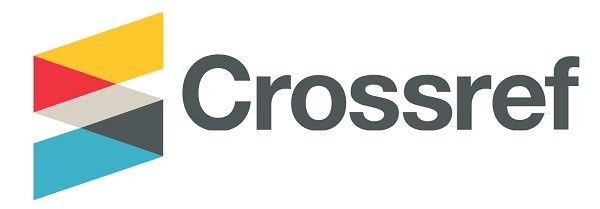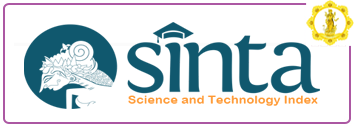RELASI KUASA TERHADAP KONSTRUKSI PENGETAHUAN DI SEKOLAH PERSPEKTIF MICHEL FOUCAULT DAN REFLEKSI ATAS SISTEM PENDIDIKAN DI INDONESIA
DOI:
https://doi.org/10.25078/sa.v5i1.3405Keywords:
Power Relations, Knowledge Construction, Indonesian Education, Michel FoucaultAbstract
This research aims to analyse the role of power in the formation of knowledge construction in the educational environment, especially in the Indonesian education system, using Michel Foucault’s theoretical perspective. The method used in this research is a qualitative method with a philosophical hermeneutic approach. This research highlights how power plays a key element in the process of knowledge construction in schools. Foucault’s concept of power is used to understand how educational institutions, through curriculum, rules, assessment, and institutional structures, influence the formation of knowledge received by students. The analysis in this study also highlights how political power, ideology and cultural values are reflected in the Indonesian education system, shaping certain narratives in curriculum and learning. In addition, this research also shows that power plays a significant role in the construction of knowledge in schools, with strong influence from external factors such as government policies, ideologies and cultural values. The implication is the need for critical reflection on the Indonesian education system, emphasising inclusivity, plurality of perspectives, and meeting the needs of diverse students to enrich knowledge construction in the curriculum and learning process.
References
Baker, B., & Heyning, K. (2004). Dangerous Coagulations: The Uses of Foucault in the Study of Education. New York: Peter Lang.
Ball S (ed.). (1990). Foucault and Education: Disciplines and Knowledge. London: Routledge.
Ball, S. J. (2017). Foucault as Educator. London: Springer.
Blades, D. (1997). Procedures of Power and Curriculum Change: Foucault and the Quest for Possibilities in Science Education. New York: Peter Lang.
Bushnell, R. (1996). A Culture of Teaching: Early Modern Humanism in Theory and Practice. Ithaca: Cornell University Press.
Cahyani, F. F. (2017). Relasi Kuasa dalam Perubahan Kurikulum 2013. Jurnal Analisa Sosiologi, 6(1).
Deacon, R. (2000). Theory as Practice: Foucault’s Concept of Problematization. Telos, 118:127-142.
Deacon, R. (2002). Truth, Power and Pedagogy: Michel Foucault and the Rise of the Disciplines. Educational Philosophy and Theory, 34:435-458.
Deacon, R. (2005). Moral Orthopedics: A Foucauldian Account of Schooling as Discipline. Telos, 130:84-102.
Deacon, R. (2006). From Confinement to Attachment: Foucault on the Rise of the School. The European Legacy (in press).
Foucault, M. (1988). Madness and Civilization: A History of Insanity in the Age of Reason. Trans. Richard Howard. New York: Vintage Books.
Foucault, M. (2000). Seks dan Kekuasaan: Sejarah Seksualitas. Terj. Rahayu S. Hidayat. Jakarta: PT. Gramedia Pustaka utama.
Foucault, M. (2002). Archaeology of Knowledge. Trans. Sheridan Smith. London and New York: Routledge.
Foucault, M. (2005). Order of Things: The Archaeology of the Human Sciences. Trans. Tavistok/Routledge. London and New York: Routledge.
Gutting, G. (2005). Foucault: A Very Short Introduction. New York: Oxford University Press.
Ilham, F. M. (2020). Relasi Kuasa Guru dalam Pengajaran Pendidikan Agama Islam. Jurnal Paradigma Universitas Negeri Surabaya, 9(2).
Jardine, G. M. (2005). Foucault and Education. New York: Peter Lang Publishing, Inc.
Olssen, M. (1999). Michel Foucault: Materialism and Education. London: Bergin and Garvey.
Siswadi, G. A. (2023a). Konsep Kebebasan dalam Pendidikan Perspektif Rabindranath Tagore dan Relevansinya Bagi Pengembangan Sistem Pendidikan di Indonesia. Padma Sari: Jurnal Ilmu Pendidikan, 2(02), 97-108, 2(02), 97–108.
Siswadi, G. A. (2023b). Merayakan Kemerdekaan dalam Belajar. Badung: Nilacakra.
Tamboukou, M. (2003). Women, Education and the Self: A Foucauldian Perspective. New York: Palgrave Macmillan.
Walshaw, M. (2007). Working with Foucault in Education. Rotterdam: Sense Publisher.
Downloads
Published
Issue
Section
License
Copyright (c) 2024 Sang Acharya: Jurnal Profesi Guru

This work is licensed under a Creative Commons Attribution-NonCommercial-NoDerivatives 4.0 International License.












